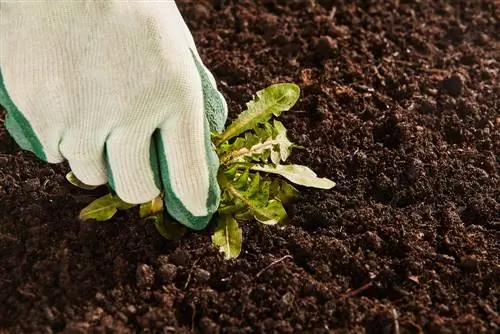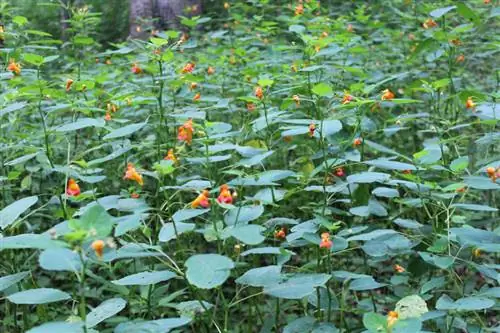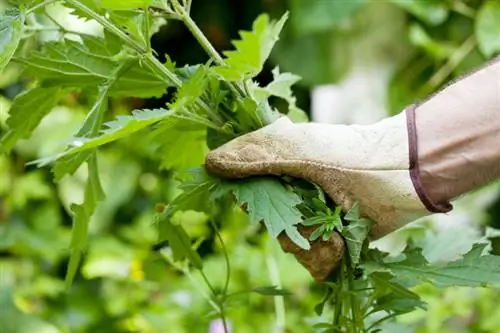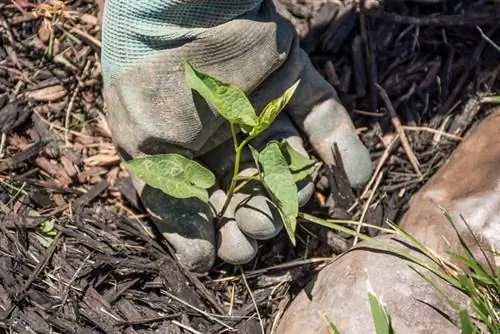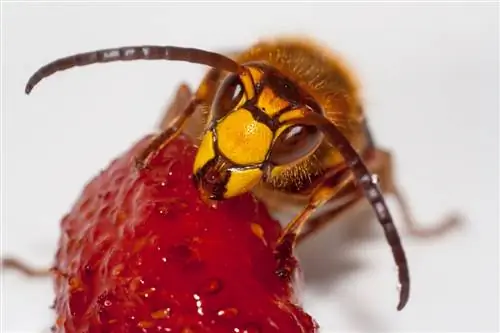- Author admin leonars@hobbygardeners.com.
- Public 2023-12-16 16:46.
- Last modified 2025-01-23 11:21.
Not only the numerous hungry pests, but also many weeds (botanically correct: weeds) make life difficult for the gardener. When bindweed and groundweed spread cheerfully in the vegetable patch, many a recreational gardener comes to the idea of quick-acting herbicides, i.e. chemical weed killers. However, these are generally not designated for use in the vegetable garden.
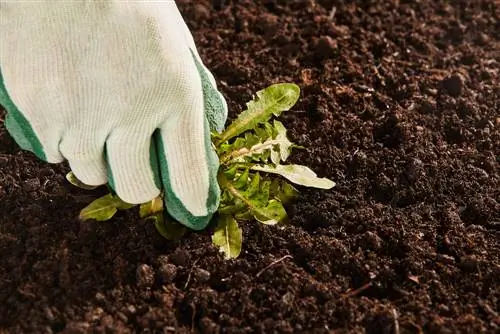
Which weed killers are suitable for the vegetable garden?
In the vegetable garden, chemical weed killers should only be used in extreme emergencies; instead, regular removal of weeds by hand and mulching are recommended. It is better to use environmentally friendly preparations based on acetic acid or pelargonic acid than toxic herbicides such as glyphosate.
Consistently remove weeds
Basically, the only thing that helps against them is repeated and regular manual removal of weeds. Weed between the rows of vegetables, then chop them thoroughly with a bow hoe and cultivator. Mulching also reduces unwanted growth between crops. Weeds must be removed because they compete with vegetable plants for light and nutrients and are often host plants for pests and diseases, which in turn pass on to the vegetables. Root weeds in particular often grow so vigorously that they literally destroy other plants. This type of weed (e.g. thistles, couch grass, groundweed and field bindweed) should be removed along with the roots using a weed cutter (€8.00 on Amazon).
In severe cases, cover weeds with black mulching film
If weeds have finally become so prevalent in the bed that it is basically no longer usable, the area can be completely covered with a black mulching film. It is best to leave this for several months, as the deprivation of light and air will eventually kill even the most indestructible weeds. Nevertheless, you should then carefully remove any remaining root residues that you can find.
Use herbicides in the vegetable garden only in extreme emergencies
There are some weed killers that are approved for home and allotment gardens. Preparations based on pelargonic acid or acetic acid in particular have little impact on the environment. Highly toxic and probably carcinogenic agents such as glyphosate (also known as “Round-Up”), on the other hand, really have no place in the kitchen garden. However, these herbicides do not distinguish between cultivated plants and unwanted herbs, which is why they must be specifically applied to individual weeds. Spraying, painting or dabbing often has to be done several times to kill the plant.
Tip
Anyone who uses herbicides in the kitchen garden should under no circumstances harvest and consume vegetables or herbs that have been accidentally sprayed. The poisons they contain also pass into the fruits and roots and can have serious he alth consequences.

